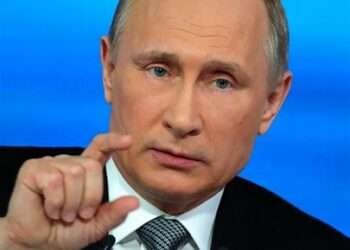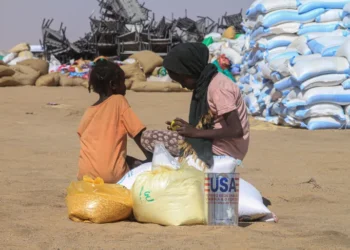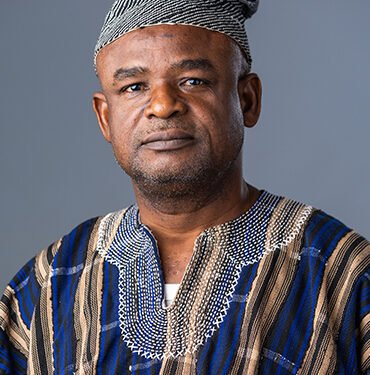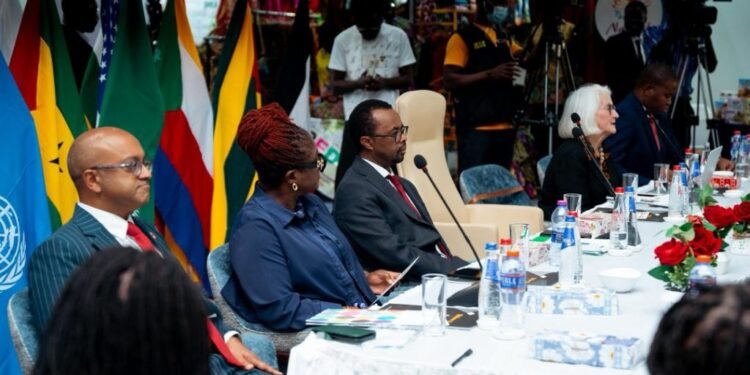Leaders of the Group of Seven (G7) countries have gathered for a three-day summit at Borgo Egnazia resort in the southern region of Puglia, Italy.
Italy’s Prime Minister Giorgia Meloni, the host of this year’s summit, welcomed the heads of state of the seven members – the United States, Canada, Germany, France, Italy, Canada and the United Kingdom – as well as the Chiefs of the European Council and the European Commission.
Italy extended an invitation to more than 10 other countries for sideline discussions. These include UAE’s Mohamed bin Zayed, Algeria’s President Abdelmadjid Tebboune, Jordan’s King Abdullah II and Turkey’s President Recep Tayyip Erdogan.
Pope Francis is part of the invited guests, marking the first time a Pontiff has been invited to the summit, for a session dedicated to artificial intelligence (AI).
Other specific sessions will then be on migration, financial issues and the situation in the Asia Pacific.
In a promo video, Meloni set out aims for Italy’s presidency of the G7 and hosting the summit.
In it, she said that the G7 had “taken on an irreplaceable role in defending freedom and democracy and managing global challenges.”
“Italy has taken on this historic responsibility at a particularly complex time. Russia’s war of aggression against Ukraine has challenged the international system based on the rule of law. And the violation of those principles holding the international community together is triggering hotbeds of conflict in various parts of the world…
“We have set ourselves the goal of building an equal cooperation model that rejects a predatory approach and is able to offer benefits for all.”
Giorgia Meloni
Africa and the Mediterranean – two key national security issues – will feature prominently in the summit.
Meloni is expected to expand her flagship foreign policy, the so-called Mattei Plan. The project aims to position Italy as a major energy hub between Europe and the African continent in the hope of boosting growth in Africa and, in turn, curbing immigration to Europe.
Support for Ukraine is also top of the agenda. President Volodymyr Zelenskyy is scheduled to arrive on the summit’s first day for two sessions dedicated to the war-torn country.
Another session is on the Middle East, where Israel’s war on Gaza is expected to dominate talks.
According to observers, the leaders are likely to reiterate past positions, from calling on Hamas to accept a ceasefire deal laid out by US President Joe Biden, to acknowledging the importance of a two-state solution for peace in the region.
A final statement is expected on Saturday, June 15, 2024.
This is usually a document that indicates the direction the group’s members intend to follow – crafting future policies while offering the rest of the world a window into their priorities.
Zelenskyy Outlines Ukraine’s Main Issues
As the leaders began to gather at the G7 summit, Ukraine’s President, Volodymyr Zelenskyy issued a lengthy message on social media ahead of today’s discussions.
In it, he said, “For us, the main issues are developing fighter jet coalition, expediting pilot training, and accelerating aircraft delivery. Development of the Ukrainian air defense system based on the most powerful western systems, as well as an increase in long-range capability.”
He revealed that bilateral security agreements will be signed during meetings with US President Joe Biden and Japanese Prime Minister, Fumio Kishida.
“The document with the United States will be unprecedented, as it should be for leaders who support Ukraine,” he stated.
He noted that the entire Ukrainian people, including “our warriors, see that the G7 will always support Ukraine.”
“I am grateful to our partners for their belief in us and our victory,” he concluded.
READ ALSO: Yvonne Jegede Tenders Apology For Statements Concerning Yul’s Estranged Marriage























